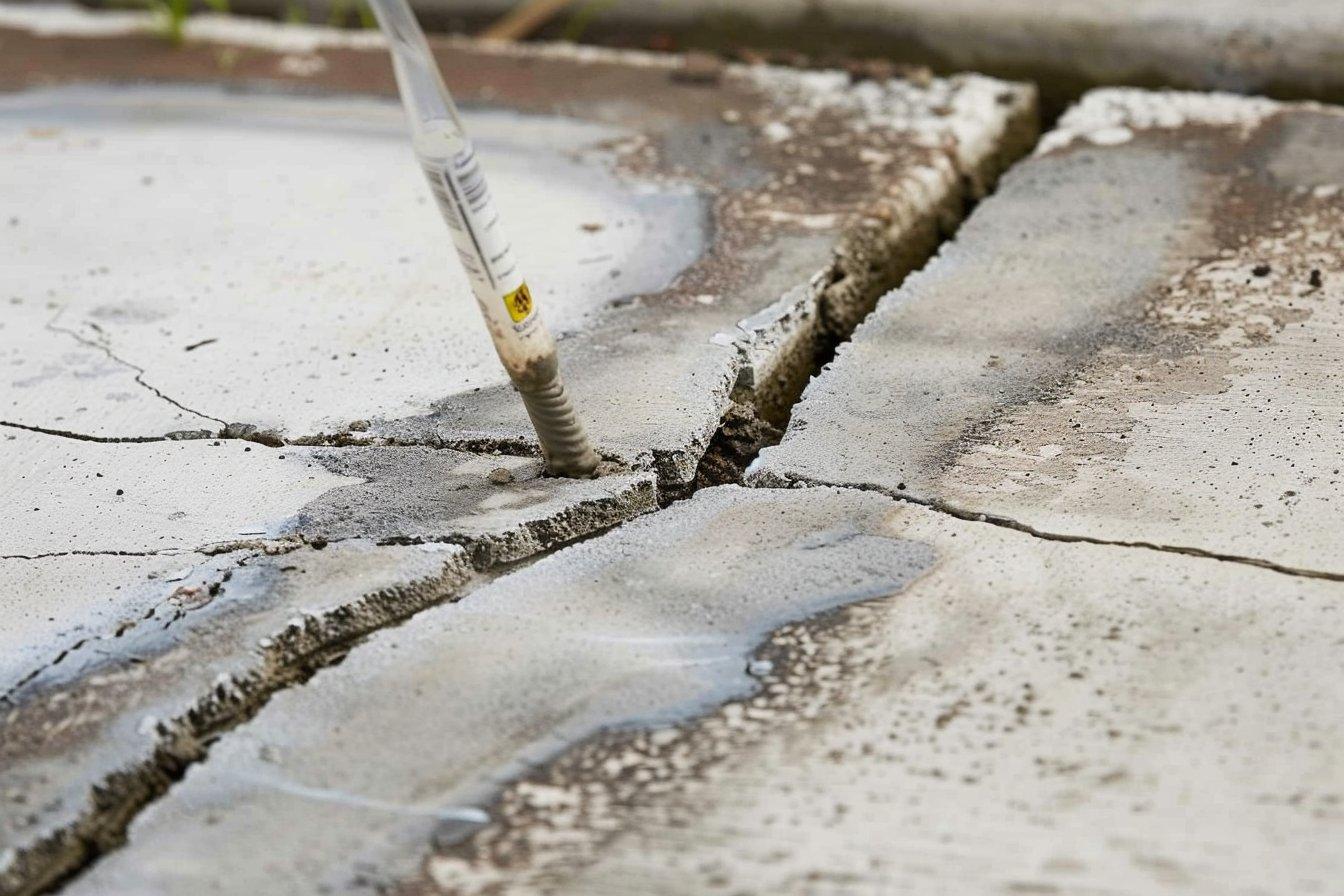Effective Solutions for Concrete Crack Repair: A Comprehensive Guide
Concrete is a durable and widely used material in construction, but it's not immune to cracking. Whether you're dealing with minor hairline cracks or more significant structural issues, understanding concrete crack repair is essential for maintaining the integrity and longevity of your concrete surfaces. This guide will explore effective solutions, techniques, and considerations for addressing concrete cracks, helping you make informed decisions about repair and maintenance.

What causes concrete cracks to form?
Concrete cracks can develop for various reasons, including:
-
Shrinkage: As concrete dries and cures, it naturally shrinks, which can lead to surface cracks.
-
Temperature fluctuations: Extreme temperature changes cause concrete to expand and contract, potentially resulting in cracks.
-
Settling: When the ground beneath concrete shifts or settles unevenly, it can cause stress and cracking.
-
Overloading: Excessive weight or pressure on concrete surfaces can lead to structural cracks.
-
Poor installation: Improper mixing, pouring, or curing techniques during installation can contribute to crack formation.
Understanding the root cause of cracks is crucial for determining the most appropriate repair method and preventing future issues.
How can you assess the severity of concrete cracks?
Before attempting any repairs, it’s essential to evaluate the severity of the cracks:
-
Measure the width: Hairline cracks (less than 1/8 inch wide) are generally less concerning than wider cracks.
-
Observe the pattern: Straight, uniform cracks are often less severe than those that are jagged or branching.
-
Check for movement: If the crack edges move when pressure is applied, it may indicate a more serious structural issue.
-
Look for water seepage: Cracks that allow water to penetrate can lead to further damage and should be addressed promptly.
-
Consider the location: Cracks in load-bearing areas or near joints require more immediate attention.
For complex or potentially structural issues, it’s advisable to consult with professional UK concrete contractors for a thorough assessment.
What are the most effective DIY concrete crack repair methods?
For minor cracks, several DIY repair options are available:
-
Epoxy injection: This method involves injecting epoxy into the crack, creating a strong bond that prevents further spreading.
-
Concrete patching compound: Apply a patching compound to fill and seal small cracks, then smooth the surface.
-
Vinyl concrete patch: This flexible material is ideal for cracks in areas subject to movement or temperature changes.
-
Hydraulic cement: Quick-setting hydraulic cement is effective for repairing cracks in damp or wet conditions.
-
Polyurethane foam injection: This expandable foam can fill and seal larger cracks, especially in foundation walls.
When attempting DIY repairs, always follow manufacturer instructions and ensure proper surface preparation for the best results.
When should you hire professional concrete contractors?
While DIY methods can be effective for minor repairs, certain situations warrant professional assistance:
-
Wide or deep cracks (larger than 1/4 inch)
-
Cracks that continue to widen or show signs of movement
-
Structural cracks in load-bearing walls or foundations
-
Multiple cracks or extensive damage across a large area
-
Cracks accompanied by other issues, such as soil erosion or water damage
Professional concrete contractors have the expertise, equipment, and materials to address more complex repair needs effectively. They can also provide a thorough assessment of the underlying causes and recommend long-term solutions.
What innovative concrete crack hacks are gaining popularity?
In the world of concrete repair, several innovative techniques and products have emerged:
-
Carbon fiber reinforcement: This lightweight, strong material can be applied over cracks to prevent further spreading.
-
Self-healing concrete: Embedded bacteria or special additives allow concrete to repair minor cracks autonomously.
-
Flexible sealants: Advanced polymer-based sealants offer improved flexibility and durability for crack repair.
-
Crack injection kits: DIY-friendly kits combine professional-grade epoxy with easy-to-use applicators for precise repairs.
-
Nanotechnology-enhanced materials: Some cutting-edge products incorporate nanoparticles to improve bonding and strength.
While these innovative solutions show promise, it’s essential to research their effectiveness and consult with professionals before applying them to your specific situation.
How can you find reliable concrete contractors nearby?
Finding trustworthy concrete contractors in your area is crucial for quality repairs:
-
Ask for recommendations from friends, family, or local hardware stores.
-
Check online directories and review sites for well-rated contractors.
-
Verify credentials, including licenses, insurance, and professional associations.
-
Request multiple quotes and compare services offered.
-
Ask for references and examples of previous work.
| Provider | Services Offered | Key Features/Benefits |
|---|---|---|
| Concrete Repairs UK | Crack repair, resurfacing, sealing | Nationwide coverage, 10-year guarantee |
| Local Concrete Solutions | Residential and commercial repairs | Same-day service, eco-friendly options |
| Pro-Crete Services | Structural repairs, foundation work | Advanced diagnostic tools, 24/7 emergency service |
| CrackFix Specialists | DIY product range, professional repairs | Online tutorials, bulk discounts for contractors |
| EcoConcreteRepair | Sustainable repair solutions | Low-carbon materials, energy-efficient techniques |
When selecting a contractor, consider their expertise, pricing, and ability to address your specific repair needs. Remember that the cheapest option isn’t always the best; focus on value and quality of work.
In conclusion, understanding concrete crack repair is essential for maintaining the structural integrity and appearance of concrete surfaces. By assessing the severity of cracks, choosing appropriate repair methods, and knowing when to seek professional help, you can effectively address concrete damage and prevent future issues. Whether opting for DIY solutions or hiring experienced contractors, timely and proper repair is key to extending the life of your concrete structures.




